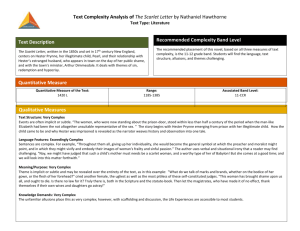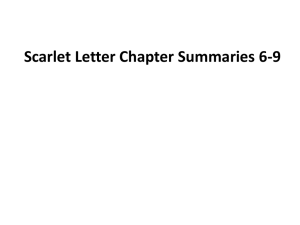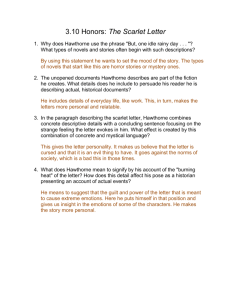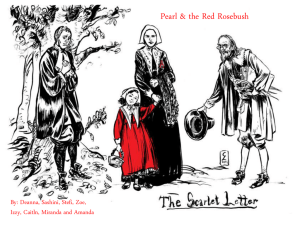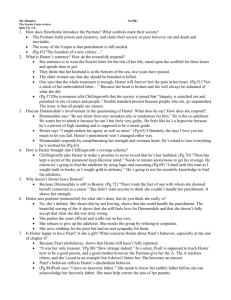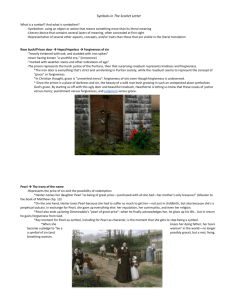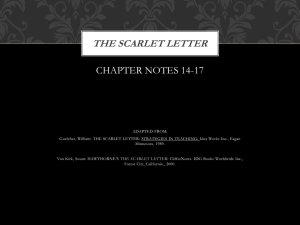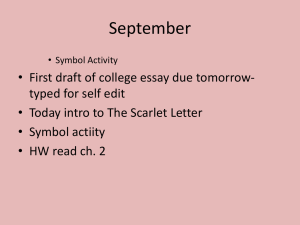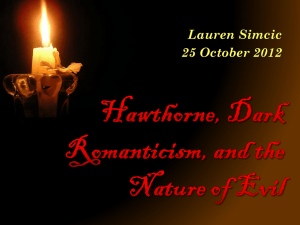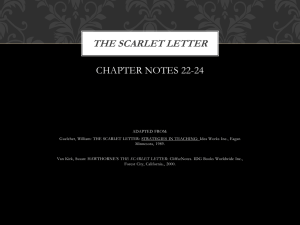File
advertisement
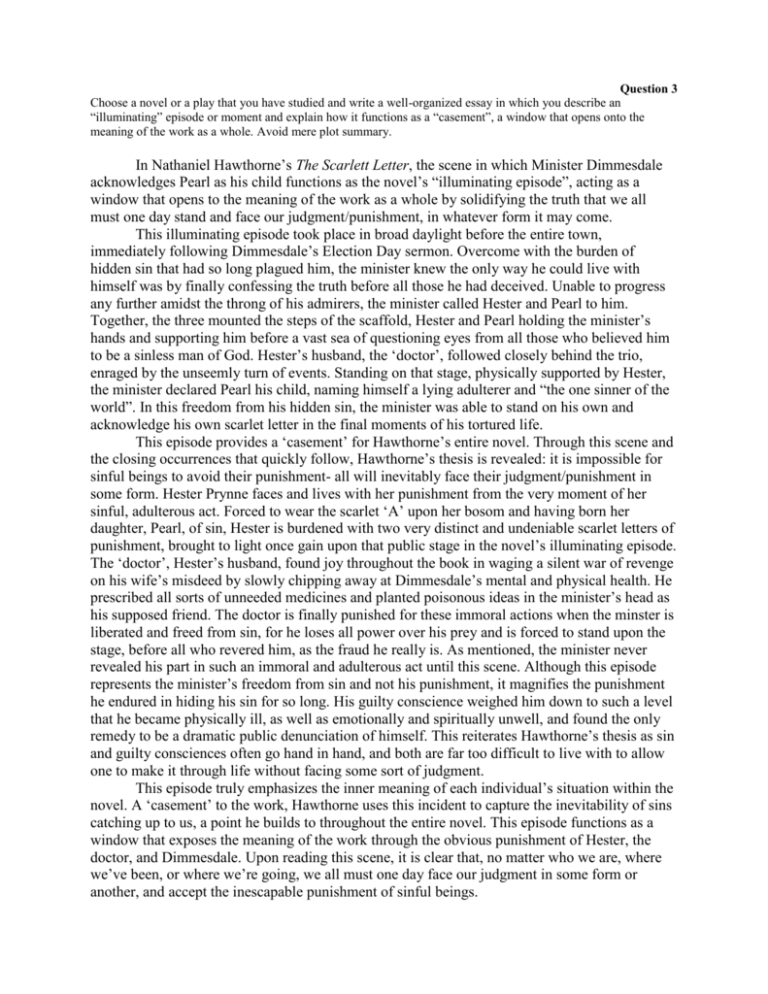
Question 3 Choose a novel or a play that you have studied and write a well-organized essay in which you describe an “illuminating” episode or moment and explain how it functions as a “casement”, a window that opens onto the meaning of the work as a whole. Avoid mere plot summary. In Nathaniel Hawthorne’s The Scarlett Letter, the scene in which Minister Dimmesdale acknowledges Pearl as his child functions as the novel’s “illuminating episode”, acting as a window that opens to the meaning of the work as a whole by solidifying the truth that we all must one day stand and face our judgment/punishment, in whatever form it may come. This illuminating episode took place in broad daylight before the entire town, immediately following Dimmesdale’s Election Day sermon. Overcome with the burden of hidden sin that had so long plagued him, the minister knew the only way he could live with himself was by finally confessing the truth before all those he had deceived. Unable to progress any further amidst the throng of his admirers, the minister called Hester and Pearl to him. Together, the three mounted the steps of the scaffold, Hester and Pearl holding the minister’s hands and supporting him before a vast sea of questioning eyes from all those who believed him to be a sinless man of God. Hester’s husband, the ‘doctor’, followed closely behind the trio, enraged by the unseemly turn of events. Standing on that stage, physically supported by Hester, the minister declared Pearl his child, naming himself a lying adulterer and “the one sinner of the world”. In this freedom from his hidden sin, the minister was able to stand on his own and acknowledge his own scarlet letter in the final moments of his tortured life. This episode provides a ‘casement’ for Hawthorne’s entire novel. Through this scene and the closing occurrences that quickly follow, Hawthorne’s thesis is revealed: it is impossible for sinful beings to avoid their punishment- all will inevitably face their judgment/punishment in some form. Hester Prynne faces and lives with her punishment from the very moment of her sinful, adulterous act. Forced to wear the scarlet ‘A’ upon her bosom and having born her daughter, Pearl, of sin, Hester is burdened with two very distinct and undeniable scarlet letters of punishment, brought to light once gain upon that public stage in the novel’s illuminating episode. The ‘doctor’, Hester’s husband, found joy throughout the book in waging a silent war of revenge on his wife’s misdeed by slowly chipping away at Dimmesdale’s mental and physical health. He prescribed all sorts of unneeded medicines and planted poisonous ideas in the minister’s head as his supposed friend. The doctor is finally punished for these immoral actions when the minster is liberated and freed from sin, for he loses all power over his prey and is forced to stand upon the stage, before all who revered him, as the fraud he really is. As mentioned, the minister never revealed his part in such an immoral and adulterous act until this scene. Although this episode represents the minister’s freedom from sin and not his punishment, it magnifies the punishment he endured in hiding his sin for so long. His guilty conscience weighed him down to such a level that he became physically ill, as well as emotionally and spiritually unwell, and found the only remedy to be a dramatic public denunciation of himself. This reiterates Hawthorne’s thesis as sin and guilty consciences often go hand in hand, and both are far too difficult to live with to allow one to make it through life without facing some sort of judgment. This episode truly emphasizes the inner meaning of each individual’s situation within the novel. A ‘casement’ to the work, Hawthorne uses this incident to capture the inevitability of sins catching up to us, a point he builds to throughout the entire novel. This episode functions as a window that exposes the meaning of the work through the obvious punishment of Hester, the doctor, and Dimmesdale. Upon reading this scene, it is clear that, no matter who we are, where we’ve been, or where we’re going, we all must one day face our judgment in some form or another, and accept the inescapable punishment of sinful beings.
